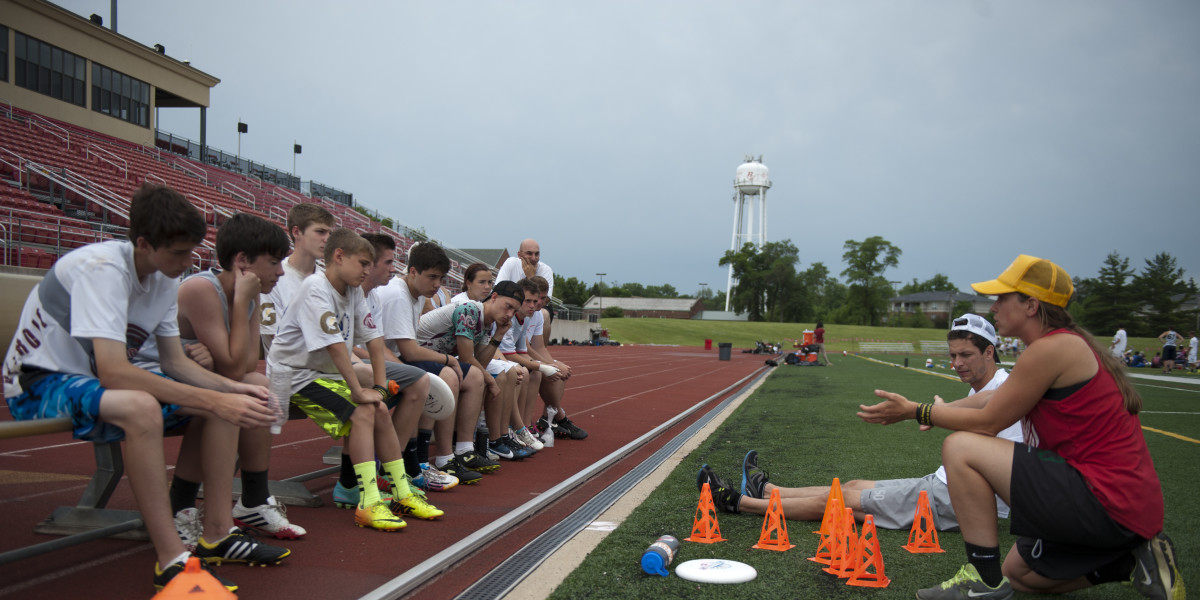
Creating the right roles for both coaches and players
There are many opportunities in ultimate for both coaches and players to define where they add the greatest value back into the team. Setting up the practice field, planning practice, developing drills and determining strategy are areas where coaches often take over—sometimes at the expense of allowing players to tackle these responsibilities.
In the beginning, Ohio State Women’s ultimate team Fever was mostly player-led while I spent more of my time in an advisor role, rather than as a hands-on type of coach. The coaching staff grew as the team became more competitive, and some tasks were inadvertently removed from player control. Meanwhile, the coaches started to put much of their energy into the details instead of stepping up to the plate as the leaders the players needed them to be. I found myself wondering if there was a better way for both sides of the team’s equation.
Empowering players
I don’t empower players enough. I have a way I want the field to be set up at practice. I have experience in planning a practice so that it addresses specific skills and has a flow to it. I know where to place cones to optimize the desired outcome of the drill. And I have strategies that I like to implement. Instead of trying to control everything, I need delegate these types of duties to empower my players to be contributing, valuable team members.
Having talked with many college coaches, I’m familiar with the different ways that they address empowering players. Some of these include regular meetings with team leaders to discuss strategy, delegating players to lead a warm-up activity, and designating practices as “player-designed, player-led” to help push in senior players to be more active. My goal is to have my players participate in practice set up more often, and it needs to be more than the “Pick up the cones!” at the end of practice.
Not all players want to take on leadership roles. Some just want to be present, and follow the script of practice. I believe all players need to be exposed to the otherwise behind-the-scenes effort that sets the stage for a team to grow. Have players help write the script. Designate players who will be responsible for practice set up. Create an open forum for the team, from rookies to returners, to encourage feedback about strategy and help identify which skills still need to be worked on.
Why it matters
Aside from the obvious benefit of having more hands helping out, delegating team tasks matters. I view ultimate as a player-led, player-owned sport. While over the years I have gained a much clearer understanding of the benefits of having a coach, I still believe in a unique aspect of ultimate—that it’s the players that make it happen on and off the field. And as such, players need to be empowered to take on that ownership and run with it.
As coaches, we need to shift our main focus to being parents, teachers, and mentors instead of mere team strategizers. Put your players in situations where they need to think things through. Allow them to fail as they take the lead on some aspect of the development of their team. As coaches, we need to have patience and allow our players to make mistakes in order to empower them. It’s going to be okay if the field gets set up as a trapezoid with 15 yard end zones *cringe*. Let a drill run a little awkwardly to see if the team can figure out the adjustments that are needed to fix it. Players need to feel that they can suggest tweaks to a drill to better address the skills they are working on. And a team needs to see a strategy fail in order to find new ways of running-catching-throwing, leading to success on the field.
Empower your players to take ownership. Empower your players to lead.










Comments Policy: At Skyd, we value all legitimate contributions to the discussion of ultimate. However, please ensure your input is respectful. Hateful, slanderous, or disrespectful comments will be deleted. For grammatical, factual, and typographic errors, instead of leaving a comment, please e-mail our editors directly at editors [at] skydmagazine.com.